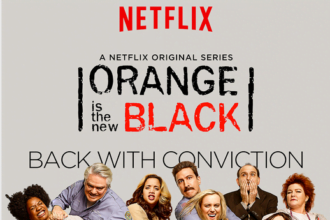The foodie movement has gained surprising momentum in recent years. A poll conducted in 2009 concluded that 31 million Americans identified as foodies. This means that foodies account for nearly 10% of the population.
A very large number of foodies are in the millennial generation. This is going to have profound implications for our health in the years to come. But will the impact be positive or negative? Will it reduce the prevalence of chronic diseases in the future as this generation becomes older?
Millennials are driving the growth of the foodie movement
One poll by Techmonic shows that 42% of millennial consumers eat at a fine dining restaurant on at least a monthly basis. This figure is twice as high as with baby boomers. More surprisingly, it shows that millennials are less likely to visit bars and more likely to visit nice restaurants. A recent interview with Danielle Finestone suggests that the foodie revolution is having a profound cultural change on the millennial generation.
A variety of factors appear to be driving the trend. One of the influencing variables is the fact that millennials are more likely to prioritize value over affordability and convenience. Millennials are also a lot more health-conscious than previous generations.
Is the foodie movement leading to healthier outcomes?
The focus on finer cuisines does not necessarily translate into healthier eating habits. In the middle of the 20th Century, a study found that poorer people that ate more generic food tended to be healthier than wealthier people with an affinity for overpriced meats. However, there are a number of reasons that the foodie movement is different.
A recent study found that people that labeled themselves as “adventurous eaters” tended to score better on almost all health outcomes than their non-foodie counterparts.
“These findings are important to dieters because they show that promoting adventurous eating may provide a way for people — especially women — to lose or maintain weight without feeling restricted by a strict diet,” said Brian Wansink, co-author of the study. “Instead of sticking with the same boring salad, start by adding something new. It could kick start a more novel, fun and healthy life of food adventure.”
Part of the reason is that the growth of the foodie lifestyle overlaps an invigorated focus on health. As baby boomers were younger, those that tended to express a strong interest in adventurous eating were often apathetic about making healthy lifestyle choices. They often consumed heavy doses of saturated fats, sodium and simple carbohydrates.
The consequences of these poor lifestyle practices are being observed as baby boomers continue to age. The prevalence of chronic diseases such as diabetes and heart disease are reaching epidemic proportions.
Millennials are desperately trying to avoid the fate of their parents, mentors, bosses, aunts, uncles and other baby boomers that have developed chronic diseases. Those that choose to become foodies tend to be hyperaware of these consequences. They are ingraining their concerns for a healthy lifestyle into their foodie diets.
Here are some reasons that this is going to yield positive health benefits in the years to come:
- A growing number of millennials follow the vegan diet. While being a vegan is not necessary to stay healthy, it does have many health benefits. Vegans tend to consume lower levels of saturated fat and sodium by avoiding fried chickens and red meats.
- Many millennials are following the gluten-free diet. The gluten-free diet is only technically necessary for the 1% of the population with celiac disease. However, around 30% of the population has the genetic marker for celiac, which often means that they are sensitive to gluten, even though they are not intolerant to it. Following diets that include minimal amounts of gluten can help these people avoid digestive issues and other problems as they get older.
- Most foodies look for a varied sorts of foods to add to their diet. This means that they are less likely to have deficiencies of very important nutrients.
People following these diets often notice improvements nearly immediately. However, the real benefits are not realized for years to come. This suggests that the prevalence of diabetes and other chronic health problems will be significantly reduced by the time the millennial generation is nearing retirement age.










